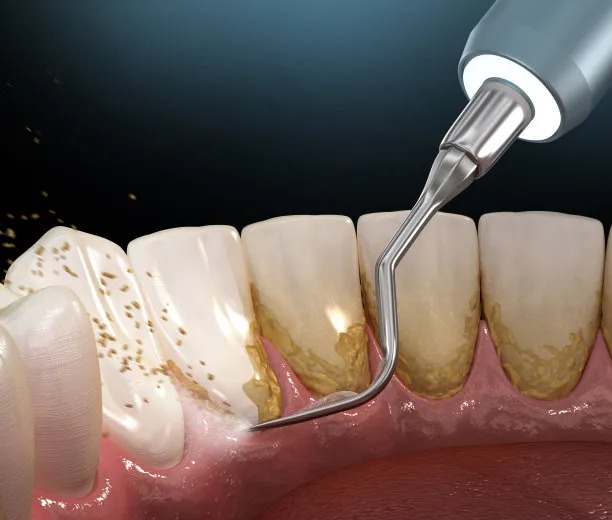Summary: This article outlines essential precautions necessary for ensuring safe and effective root canal treatment, a vital procedure for maintaining optimal oral health. It elaborates on four key areas: patient assessment and preparation, sterilization and instrument management, post-treatment care, and the importance of professional expertise. Each section offers detailed insights into best practices and considerations that patients and dental professionals should keep in mind. By following these precautions, potential complications can be minimized, and treatment efficacy can be maximized. With proper emphasis on these essentials, patients can achieve healthier outcomes and maintain optimal oral health.
1. Patient Assessment and Preparation

Before beginning any dental procedure, a comprehensive patient assessment is critical. This includes taking a detailed medical history and identifying any potential factors that might affect the treatment. For instance, underlying health conditions like diabetes or heart disease can influence the healing process. Thus, a dentist equipped with this knowledge can tailor the treatment accordingly.
Additionally, physical assessment is vital, particularly focusing on the affected tooths condition. Dental X-rays and imaging can provide great insights into the severity of the infection and the tooths anatomy. This allows for better planning and execution of the root canal procedure, ensuring that no significant issues are overlooked.
Furthermore, informing the patient about what to expect during the procedure can alleviate anxiety. Understanding the steps involved helps in building trust and compliance, which are pivotal for a smooth process. Engaging the patient in discussions about potential risks and post-treatment expectations not only prepares them mentally but also encourages active participation in their own oral health journey.
2. Sterilization and Instrument Management
The importance of sterilization cannot be overstated in root canal treatment. Every instrument and tool used during the procedure must undergo strict sterilization protocols to prevent infections. Utilizing autoclaves and other sterilization methods ensures that all instruments are free from pathogens, thus safeguarding both the patient and the dental team.
Moreover, the use of disposable items wherever possible, such as rubber dam kits and dental syringes, can significantly reduce the risk of cross-contamination. This practice enhances the safety and effectiveness of the procedure while streamlining the cleaning process post-treatment.
Instruments should also be regularly checked and maintained for functionality. Using well-maintained equipment reduces the likelihood of procedural errors and ensures that the treatment is carried out effectively. The dentist should also be familiar with the tools they are using, knowing their specific applications to handle unforeseen circumstances efficiently.
3. Post-Treatment Care and Follow-Up
Post-treatment care is essential for ensuring the success of root canal therapy. Patients should receive clear and concise post-procedure instructions. These typically include recommendations for managing discomfort, recognizing signs of infection, and maintaining oral hygiene. Instructions should emphasize the importance of taking prescribed medications, such as antibiotics or pain relievers, which aid in reducing post-treatment complications.
Additionally, follow-up appointments are crucial for monitoring healing. These check-ups allow the dentist to evaluate the treatment’s effectiveness and make any necessary adjustments. Regular visits ensure any emerging complications are addressed promptly, thus enhancing overall recovery.
Patients are encouraged to maintain ongoing communication with their dentist. Reporting any unusual symptoms promptly can avert serious repercussions. Continuous engagement fosters a collaborative relationship between patients and dental professionals, which is fundamental to preserving oral health post-treatment.
4. Expertise and Continuous Learning of Professionals
The expertise of dental professionals plays a significant role in the success of root canal treatments. It is essential for dentists to stay updated with the latest techniques and materials in endodontics. Regular training and attending workshops or conferences facilitate knowledge expansion and skills refinement, ensuring the delivery of quality care.
Moreover, collaborative practice and engaging with specialists can enhance treatment outcomes. Dentists should not hesitate to refer patients to specialists when complex cases arise. This interdisciplinary approach optimizes patient care and leverages the unique strengths of various practitioners to achieve the best results.
Lastly, patient feedback is invaluable for professionals aiming to improve their practice. Gathering insights about patient experiences can highlight areas for improvement. This not only reinforces patient trust but also enhances the overall service quality within the dental practice.
Summary:
In conclusion, safe and effective root canal treatment hinges on several essential precautions that encompass patient assessment, sterilization, post-treatment care, and professional expertise. Each aspect contributes significantly to the overall success and effectiveness of the procedure, ensuring that patients achieve optimal oral health.
This article is compiled by Vickong Dental and the content is for reference only.
Vickong Dental
Vickong Dental is a large medical group established in Hong Kong in 2008 by professors from well-known medical universities in Guangdong and Hong Kong, as well as medical doctors from key national '985' universities (including Master's supervisors and senior professors). The chain of branches brings together expert dentists with PhDs and Master's degrees from Hong Kong and Mainland China, committed to providing high-quality dental treatment.
"Vickong Dental Practices the University Motto of 'Healing and Serving Society,' with a Stable Operation for Sixteen Years. It Has Been honored with Hong Kong Enterprise Leaders's Choice,' and is a Global Trusted Implant Center for the Nobel Implant System. Recommended by Hong Kong Metro Broadcast and Guangdong Television, it Serves Customers from Over Thirty Countries and Regions, Gaining the Trust and Favor of Citizens from the Guangdong-Hong Kong-Macau Greater Bay Area and Surrounding Cities.

Thousands of customers' unanimous praise
The most recognized and highly recommended dental service by customers in the Guangdong-Hong Kong-Macau Greater Bay Area
We Ensure You Receive Detailed Care and Attention Here
Hong Kong standards, Shenzhen prices, Your Trusted English-speaking dentists

Vickong Dental Medical-Grade Instrument Disinfection Process
Vickong Dental Medical-Grade Instrument Disinfection Process

Vickong Dental Chain: A Warm and Comfortable Environment for Treatment






Appointment Hours

Q&A
Why choose Vickong Dental?
Vickong Dental practices the university motto 「Medicine to Benefit Society」, with each branch bringing together highly qualified dentists with doctoral and master’s degrees from Hong Kong and the Mainland, and has maintained seventeen years of steady operation。Recipient of 「2024 Hong Kong Enterprise Leaders Brand」, 「2025 Hong Kong Enterprise Leaders Brand」, a Nobel Biocare Global Trusted Implant Center, and a brand recommended by Metro Radio Hong Kong and Guangdong TV。
To date, we have served customers from more than thirty countries and regions,earning exceptionally high word-of-mouth recognition and trusted recommendations from residents across the Guangdong-Hong Kong-Macao Greater Bay Area and surrounding cities
We have eight major branches in Zhuhai、Shenzhen,and a consultation and service assurance center in Hong Kong,so you can book a free consultation at any time for any questions,which is very reassuring.
If I do not accept the quotation after the CT scan, will I be charged??
No! As long as the actual treatment has not started, you will not be charged any fees.
Will there be any additional charges during the treatment process?
No, there won’t be any additional charges. Before treatment begins, we will clearly explain the treatment plan and its corresponding fees. Only after the patient agrees and signs the consent form will we proceed with the dental service.
Can I pay in Hong Kong dollars?
Yes. Vickong Dental accepts payment in Hong Kong dollars. The amount will be converted based on the exchange rate of the day, and the applicable rate will be clearly communicated to you in advance.
Can I reschedule my appointment at any time?
Yes. Please contact us via **WeChat** or **WhatsApp** as early as possible, providing your original appointment time and details, along with your preferred new date and time slot for rescheduling.













